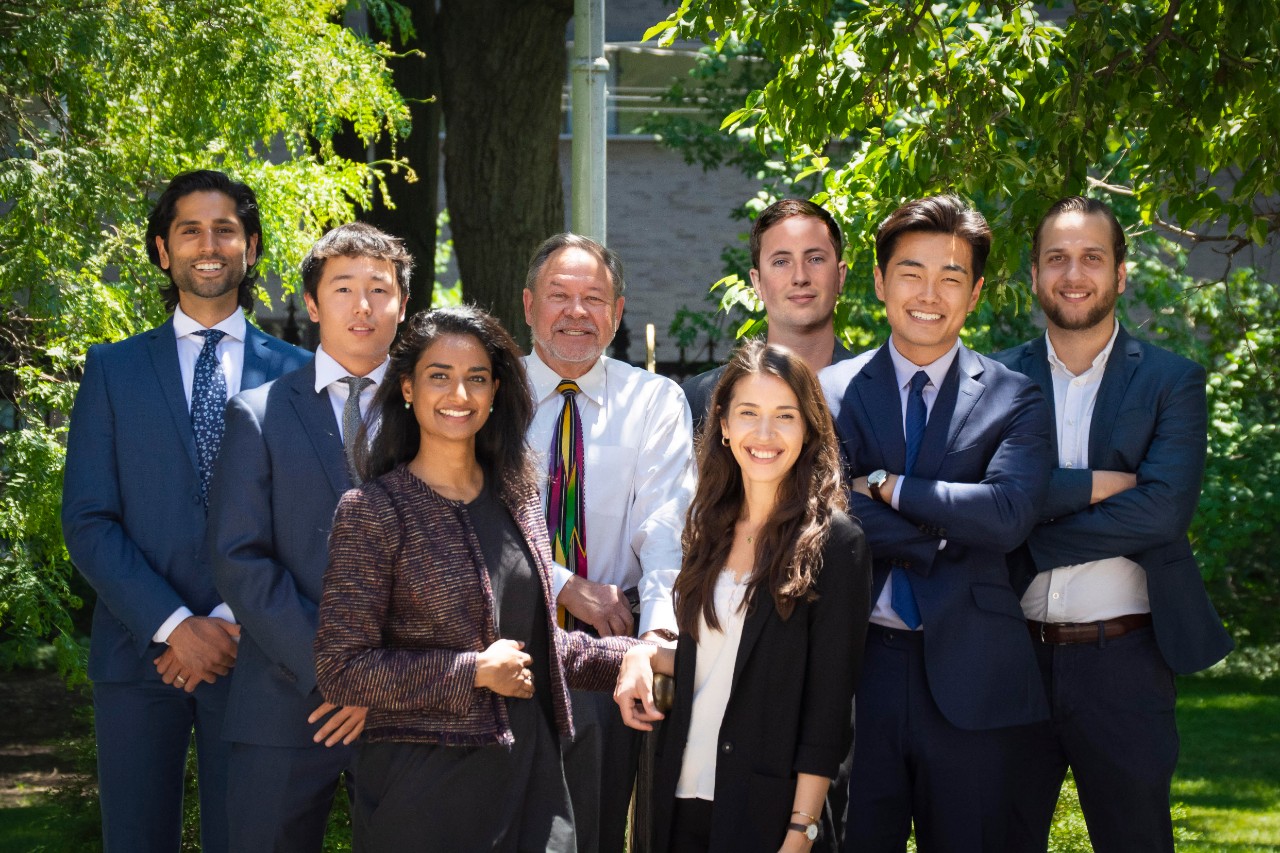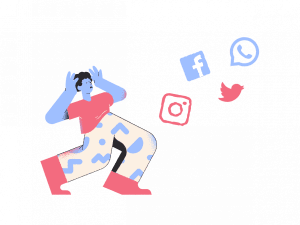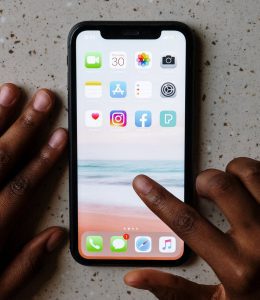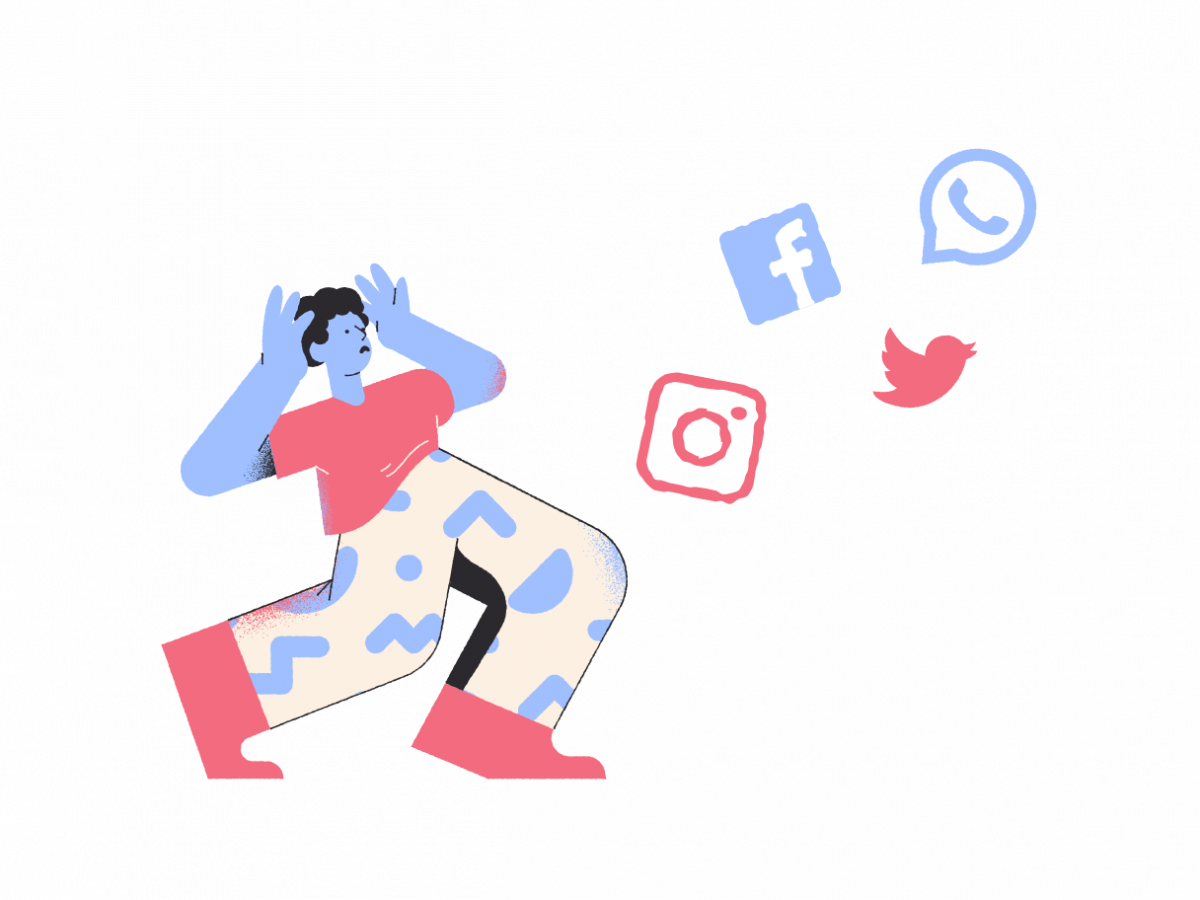[vc_row][vc_column][vc_column_text]
NCLI members pictured left to right: Fahad Diwan, Daniel Kim, Rapti Ratnayake, David Medhurst, Lana Karapetyan, Daniel Escott, Alex Don, Mark Mejia Kuznetsov.
[/vc_column_text][vc_separator][vc_column_text]So much about the legal system can feel unattainable. If it’s not the process of finding a great lawyer, it’s paying the price of a great lawyer. For business owners and Canadians across the country affected by the halted economy, finding legal aid has been difficult. Alex Don, President of the National Canadian Lawyers Initiative (NCLI), has launched the non-profit volunteer led initiative to support Canadians in urgent need of legal support.
The collective of lawyers, law students and seasoned mentors, hopes to provide immediate assistance to those struggling to find access to legal aid.
“We really want to triage and help everyone. What was a COVID-reaction has really become something more, growing to become what is now a massive access to justice initiative,” says Don.
Although created in response to increased need as a result of the coronavirus pandemic, an overall lack of resources has inspired Don and his team to reshape what access to aid looks like in Canada. “When you think of going to see a lawyer you think of going to Bay Street, to a skyscraper. For many that seems and is very unattainable. We are really trying to change that,” says Don.
In operation since the beginning of the pandemic in early March, Don says what has come out of the pause in daily life is the realization for many that the law system as it functions today, is out of date and in need of a rebranding. Dedicated to operating for the next 12 months the NCLI has already serviced thousands of Canadians and now employs over 400 student lawyers and hundreds of working lawyers eager to do what they can.
“We are really trying to shift the paradigm in the legal justice system in Canada,” Don continues, “what I mean by this is that the factors that forced us to innovate and create our virtual platform and operate over systems like Zoom, is changing the way legal processes will function going forward.”
As businesses, their employees and owners prepare to re-open further under stage two of the return to business plan mandated by the government, Don hopes the NCLI can serve as a platform and information hub to ensure Canadians make it through this time in the best shape possible, supported by their legal system.
In this week’s Start-Up Spotlight, Bay Street Bull speaks with Alex Don about the state of legal aid in the country, what inspired the NCLI and what the future of access to legal aid should look like in Canada.[/vc_column_text][vc_single_image image=”18539″ img_size=”full” add_caption=”yes”][vc_separator][vc_column_text]We are in some uncertain times. But out of this, has come the NCLI which is a great feat. What was your call to action in creating this legal resource for Canadians?
Yeah it came to be right at the beginning of the pandemic. I personally, as a lawyer started seeing a lot of need and a lot of need in different areas of the law. People that typically had no need to seek out lawyers, didn’t have familiarity with the legal system and were finding themselves in tough situations. Small businesses, entrepreneurs and freelancers were really struggling. They didn’t always qualify for legal aid and didn’t have an abundance of knowledge with private practices.
At first it was just family and friends coming to me asking for advice. After I’d help quite a few of them I realized that there was probably a smarter way to do it and a more efficient way. We are now a team of lawyers and business people really trying to help as much as we can. It was born out of COVID-19, but it quickly grew into a massive access to justice initiative.
What we’ve realized is that there is a huge gap in the justice system between legal aid and those who need it. To qualify for legal aid there is a specific means test, which means people usually have to be in really dire economic circumstances to qualify for it. On the other hand, there are private practices where as we know lawyers can be expensive. There is a middle ground where people didn’t qualify for aid but were also very unfamiliar with how the legal process works and are intimidated by that. These people were falling through the cracks, and that is where we came in and filled that gap.
You have now been providing aid for 8 weeks, how did you guys go about determining what legal aid you wanted to provide and who to provide it for?
Our approach is that we don’t pick and choose, we take on everyone. We don’t do any criminal law just because we don’t have expertise in it. Otherwise we accept everyone. We encourage people to go to our website where they can fill out a form stating what your legal issue is. They can vary from employment issues, commercial tenancies and so on. We work on the understanding that people who have lawyers, and can afford lawyers, already have lawyers and won’t contact us, so that we can focus our efforts on people who really need our help and we do what we can to provide that help.
NCLI employs a lot of student lawyers as well, which is great. Why is it such a great testing and training ground for student lawyers?
It was something that came about during our brainstorming and turned out to be a brilliant idea. I thought to engage students for a number of reasons. One being that, in speaking to any law student, you will find that these are people out to change the world. We have hundreds and hundreds of law students, we’ve surpassed 400 this week, and they continue to reach out to us just wanting to help. Secondly, a number of these students had summer internships and placements setup that have been cancelled or deferred. So we have gotten our hands on a cohort of super smart, type-a people who are eager to help out. Through this we have been able to give them really sound legal experience.
What we have essentially done is started a virtual law firm. And as far as I’m aware, this is the biggest virtual law firm initiative in the country. For our students who are getting experience in fundraising, human resources and legal writing, this has been a priceless experience.
Since we hit the press last weekend, we’ve had hundreds upon hundreds of legal submissions. We’re training our students to deal with and take on a high volume of legal submissions, and to think about legal issues in a very unique way in an even more unique time.
Not only have you made a point to employ students but you also have a roster of very well known seasoned lawyers as mentors. As someone who has gone through law school and has graduated to have a successful career in law, what does mentorship provide? Why is it so important especially in this line of work?
Mentorship is really everything. In law school, you get the theory and the technical skills. You know the law, but it’s really the way lawyers are trained, during articleship that makes a good lawyer. We’ve just been so fortunate with the mentors that have reached out. One example that really stands out is, Brad Smith who is a lawyer who reached out to us. For these students to have the opportunity to work with some of the best lawyers out there, in these complicated subjects and cases, is really something that will be beneficial to their practice down the road.
In keeping with the topic of access to justice and how the law profession as a whole can advance from here, what changes in law and justice do you want to see in the next five years?
There is a famous quote said by Marshall McLuhan that goes, ‘Our Age of Anxiety is, in great part, the result of trying to do today’s job with yesterday’s tools and yesterday’s concepts.’
The other day, the Hon. Doug Downey, the Attorney General of Ontario said, in the past 25 days, we’ve made 25 years of progress. This is completely where we stand, and this is the paradigm that we are trying to shift. We wanted to change access to justice. We want to be virtual. And we want to as Marshall McLuhan says fix today’s problems with today’s tools as opposed to yesterday’s tools. The exciting part about this project has been looking forward as a team of entrepreneurs and lawyers. We are convinced that access to justice should be like this and that everyone should have access to justice especially when reflecting on societal needs right now. Over the next five years, I really think that the profession will be moving and adapting to the virtual age. The fact that the Chief Justice of the Supreme Court of Canada and the Attorney General of Canada is talking about it really sets the precedent to go there.
Why do you think it takes such drastic events for tried and true systems to really take a look at how they’re functioning and consider more efficient ways to do so?
I think that generally change is a difficult thing to insight. The situation that’s going on in the U.S. right now– it sometimes takes really drastic measures and drastic events to realize the needed change. The way I see it is that COVID-19 has given us this time where we are able to and we are looking at our legal systems. It’s given us a moment to sit at homes and really say to ourselves, look, this system is wrong and this is where we should tweak it. I don’t know why it’s taken us so long, but to look at it through a positive lens I think that this is the right time for us to sit down, regroup and say, this is where we can do better. This is where we can be more efficient. And this is where we can be more empathetic to others.
[/vc_column_text][vc_column_text]To donate or join the team of lawyers helping Canadians receive access to justice please donate to their GoFundMe page or visit their website for more information. A volunteer run non-profit organization, the NCLI relies on donations to help manage operating costs.[/vc_column_text][/vc_column][/vc_row]













